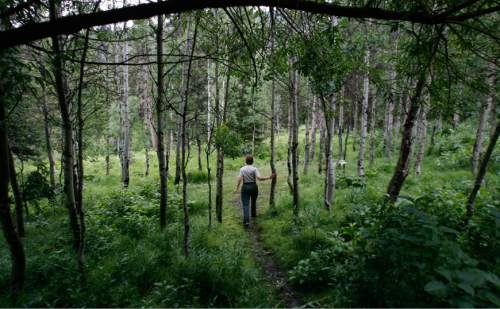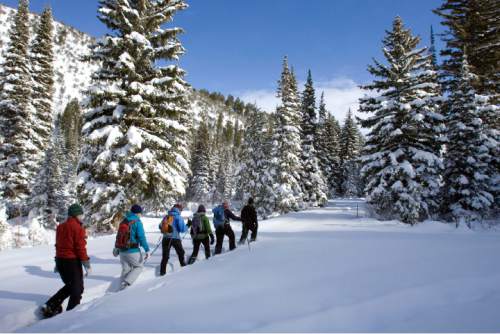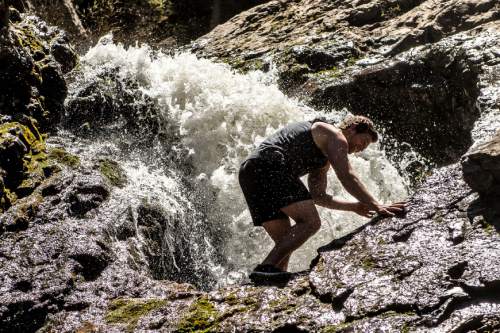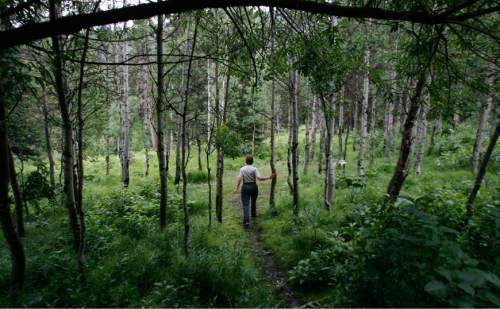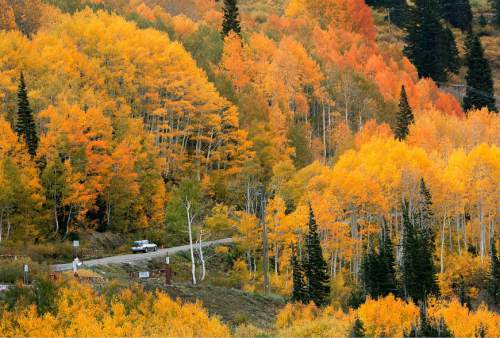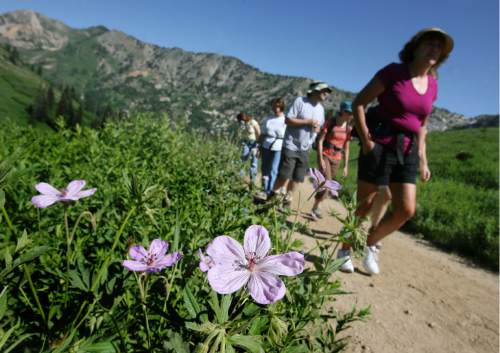This is an archived article that was published on sltrib.com in 2016, and information in the article may be outdated. It is provided only for personal research purposes and may not be reprinted.
The U.S. Forest Service wants to impose a $6-per-vehicle fee on users of popular trails in Big and Little Cottonwood canyons, which see between 5 million and 6 million visitors a year but have no independent revenue stream to develop and maintain trailheads, bathrooms, trails, picnic sites and parking areas.
"We want to improve the recreational experience," said Matt Lane, a trails manager with the Uinta-Wasatch-Cache National Forest. "We want to make it that shining star that people look to and say, That's where we want to take our family."
The proposed fee for the Cottonwood canyons would be good for three days and apply only to sites with developed amenities: Big Cottonwood's Mill D/Cardiff, Mill B South, Silver Lake, Spruces winter trailhead, Guardsman Pass trailhead and Donut Falls; and Little Cottonwood's White Pine and Temple Quarry, as well as the Catherine's Pass and Cecret Lake trailheads.
Regular Cottonwood canyon visitors would be able to purchase a $45 annual pass. This pass would also be good at American Fork Canyon and Mirror Lake Highway. The Interagency pass, which covers the national parks, could be used in the Cottonwood canyons.
Lane said the fee would be invested directly into the destinations where the money would be collected.
The proposal is modeled after fees that the forest has had in place for the past few years on Mirror Lake Highway in the western Uintas and along the Alpine Loop Road as it passes through American Fork Canyon, immediately south of the Cottonwood canyons. In 2014, that program raised $1.2 million, revenue that helps cover the cost of ski-trail grooming along Beaver Creek, renovation of the historic Theater in the Pines and improved belay platforms at the Division Wall climbing area.
The Forest Service operates 97 fee areas nationwide under the Federal Lands Recreation Enhancement Act. Under recent reforms to the program, the agency may require the fee only at sites that have amenities supported by the fee.
The Cottonwood fee would not apply to visitors parked along the road to hike Butler and Mineral forks or departing Big Cottonwood ski-area parking lots. Those staying in the canyons' campgrounds would not need to pay the additional fee if they don't leave a vehicle at a trailhead.
"We want to disincentivize private automobile use," said Carl Fisher of Save Our Canyons. "One way is to assess a fee."
On busy summer weekends, cars clog the canyons, parking is hard to find and places like Donut Falls and Silver Lake are overrun by daytrippers.
"You get that visitation, but we have nothing to sustain it," Fisher said.
The fee proposal also suggests the time has come to expand winter bus service into the summer months, according to Laney Jones, program manager for the Mountain Accord.
"It demonstrates the needs and growing use in the canyons and shrinking resources," Jones said. "It demonstrates why we need an overall plan and a source of funding to take care of these canyons."
The Forest Service does not have a clear picture of how much revenue fees would generate, as it's hard to gauge how many people visit these destinations. Lane figured 500 to 1,000 hike to Donut Falls on busy days, and the parking areas at Albion Basin trailheads often are full on weekends.
The agency counted 70,000 people last year passing through the Silver Lake visitors center, and that doesn't include the thousands more who strolled the boardwalk that encircles the shallow, reedy lake tucked under craggy peaks at the head of Big Cottonwood.
The Forest Service sends maintenance crews to the bathrooms twice a week and has trouble keeping them heated; the pipes often freeze in winter. Lane says the fee could help replace or upgrade the bathrooms and stripe parking lots so more cars could park without the lots being enlarged.
He also predicted the money could be used to improve public safety and transportation in partnership with the sheriff and the Utah Department of Transportation, which maintains the canyons' two highways.
The public has until Sept. 9 to submit comments at malane@fs.fed.us. The fee would go into effect in June 2017.
Brian Maffly covers public lands for The Salt Lake Tribune. Maffly can be reached at bmaffly@sltrib.com or 801-257-8713.


